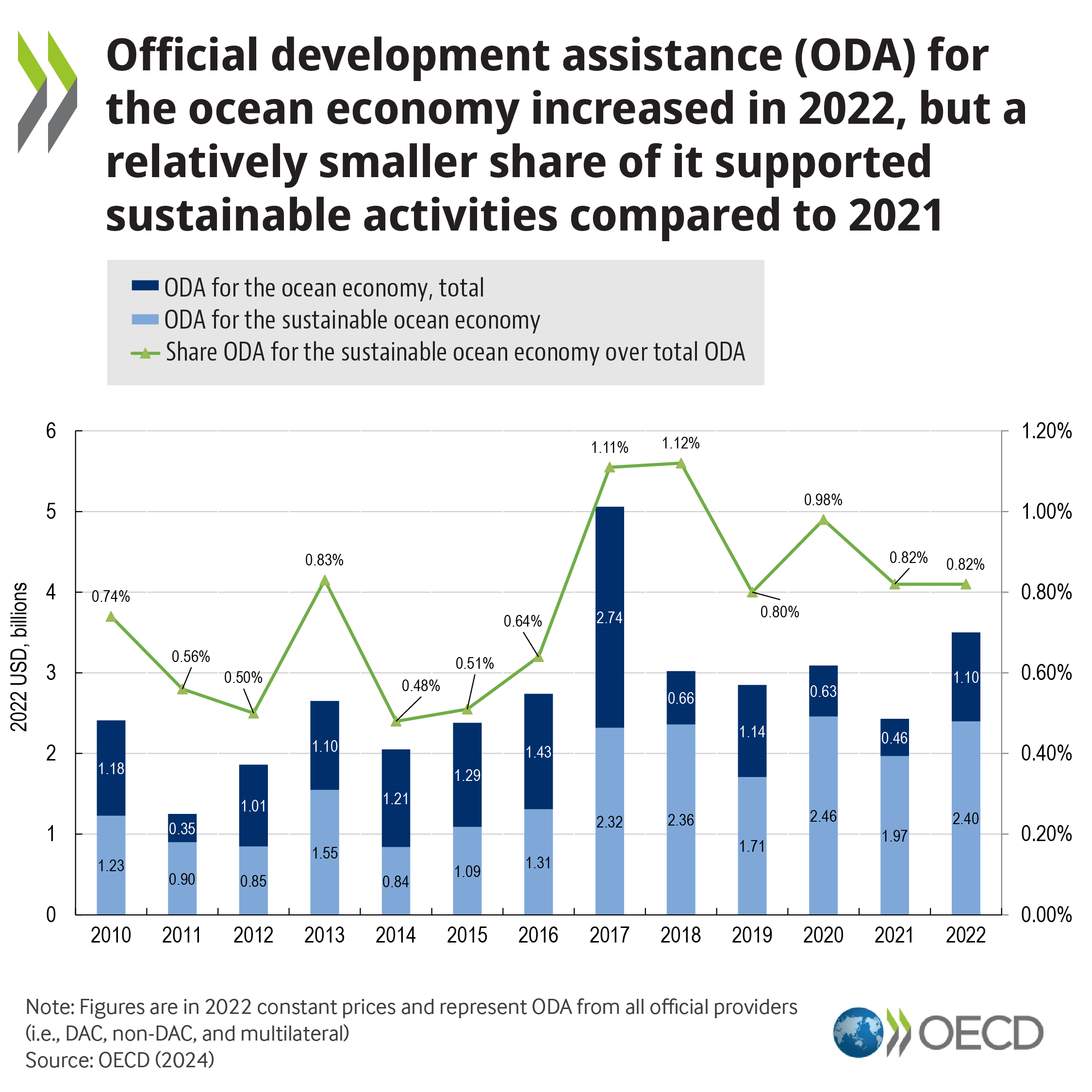More than three billion people rely on the ocean for their livelihoods, the vast majority in developing countries. In many of those, ocean-based industries such as tourism and fisheries are key sources of income, foreign exchange, and jobs. Too often, however, these sectors have expanded without sufficient consideration for environmental and social sustainability, creating low paying jobs and leading to environmental degradation. These sectors are also affected by climate change, ocean pollution, and overfishing. As the ocean becomes the centre stage for a new range of economic activities, it is critical to enable developing countries to turn new and emerging ocean-based sectors into catalysts for long-term, nature-positive, and inclusive sustainable development.
By creating a space for policy dialogue based on fresh evidence, the Sustainable Ocean for All initiative supports the transition to a truly sustainable global ocean economy, in a way that benefits the poorest and most vulnerable countries, including small island developing states.
As part of the Sustainable Ocean for All initiative, the OECD quantifies and tracks global development finance related to the ocean economy, and provides estimates of the share that enhances sustainability. These estimates are produced through a dedicated methodology and are based on statistical data from the OECD DAC Creditor Reporting System (CRS). This platform makes estimates accessible for the 2010-22 period, unless otherwise specified. In addition to global trends, it allows to easily visualise and download development finance flows for the ocean economy at a granular level.
This platform includes estimates on:
